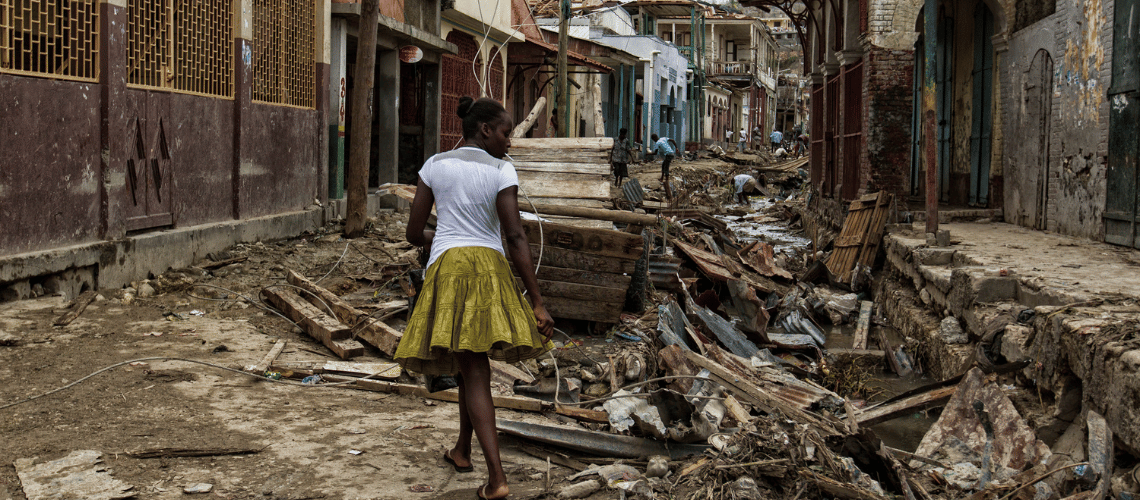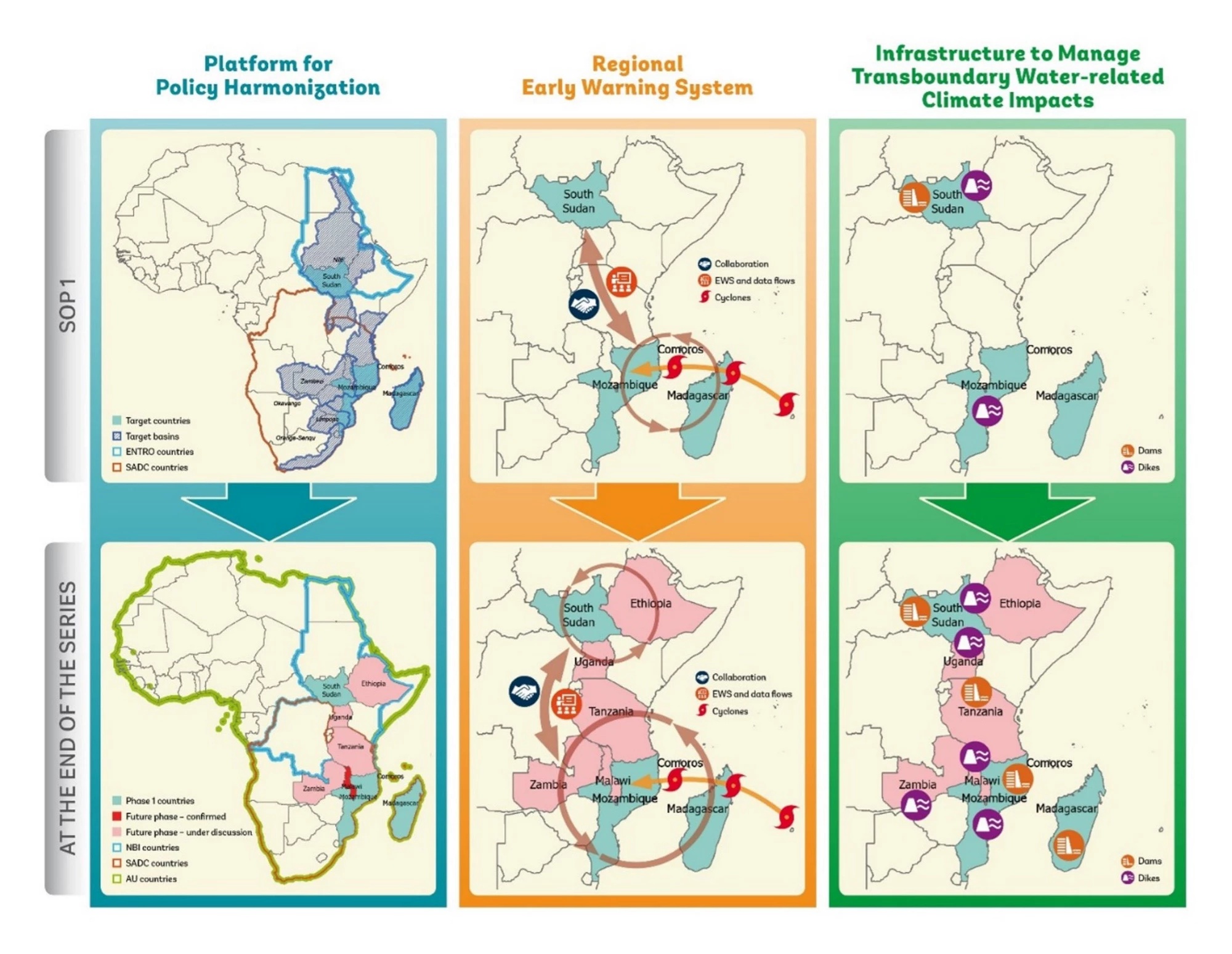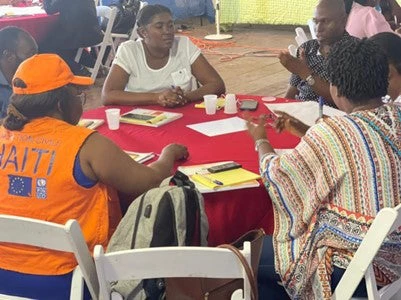 A woman walks through the rubbles in downtown Jeremie Haiti, following the passage of Hurricane Matthew in 2016.
A woman walks through the rubbles in downtown Jeremie Haiti, following the passage of Hurricane Matthew in 2016.
There is a growing recognition that affected populations during disasters can experience various forms of gender-based violence (GBV). During emergency evacuations, displacements and return, risks of sexual and physical violence, intimate partner violence, forced and/or coerced prostitution, child and/or forced marriage, and trafficking for sexual exploitation and/or forced/domestic labor are heightened.
In the last decade, the problem of GBV in displacement settings and its devastating consequences on the lives of emergency-affected persons has been documented extensively. Many studies have shown that disasters, including tsunamis, hurricanes, earthquakes, and floods, disproportionately affect women and girls, who are at greater risk of violence and exploitation than men and boys in the face of uprooted housing and traditional support structures, disrupted access to services, and both structural and social obstacles to accessing food, relief, supplies, and latrines.
In addition to the direct harm caused by violent acts, GBV and gender-related discrimination can also prevent women and girls from accessing services or securing shelters/safe spaces during an emergency, further increasing their likelihood of injury or death. It can also impact women’s access to aid and other resources during recovery and reconstruction. It is, therefore, vital that disaster risk management projects include measures to prevent and effectively respond to the risks of GBV during and after disasters.
Contributing to reducing GBV risks during emergency evacuation and displacement
Haiti is highly exposed to multi-hazards. In the last 20 years, it was hit by 77 events of various intensities ranging from flash floods, droughts, tropical storms, cyclones, and earthquakes. Over 93 percent of its surface and more than 96 percent of the population are exposed to two or more hazards. In addition, it has been widely documented in Haiti that emergency displacement has increased women´s and girls’ insecurity, exacerbating certain forms of GBV. For instance, in 2010, unsafe living conditions after the earthquake in Haiti contributed to sexual violence against women and girls in camps.
The Strengthening Disaster Risk Management and Climate Resilience Project, financed by the World Bank, includes activities to expand the network of resilient and safe emergency shelters in high-risk areas, such as providing essential services in these shelters. To make sure that emergencies and shelters are managed in line with international standards and national protocols, the Project supports a comprehensive capacity-building process to enhance the skills and capacities of the Municipal Civil Protection Committees (Comités Communaux de Protection Civile – CCPC), which constitute the backbone of Haiti’s emergency preparedness and response system.
A total of 140 CCPCs (one CCPC per municipality) are in place, covering the entire country, comprising 3,500 trained volunteers that are instrumental in evacuating the population and managing shelter-related interventions.
As part of this capacity-building program, with support from the World Bank, the experts of the Civil Protection Department developed a 2-days training package to enhance the CCPC members’ knowledge on GBV prevention and response. The training aims at providing participants with tools to identify and mitigate GBV risks before, during and after an emergency, increasing their comprehension of standards regarding GBV and making them aware of the Psychological First Aid steps and how to ensure timely referrals to specialized services for GBV survivors and people in need.
"The tools shared during this training will allow shelter managers to improve services to the populations. The managers will have simple and practical tools at their disposal" Departmental Coordinator of Nippes, Ministry of Women's Affairs and Women's Rights.
In March 2023, the project initiated the first series of Training of Trainers workshops in Les Cayes, Sud department, targeting protection and shelters´ focal points of the Civil Protection Department, the Ministry of Women and the Child Protection Agency. It will then be the Trainers’ turn to replicate the GBV training to all shelter managers of the 140 CCPC across the country in the coming months. This pool of trained volunteers will ensure that the shelter evacuation, the assistance delivered within the shelters, and returning home phase prioritize women and girls' safety and rights.
Trained CCPCs across the country will contribute to awareness raising on the risks of GBV during emergencies and help prevent and respond to GBV cases during and after emergencies supporting women and girls in all communities.
"I was very happy to participate in the training. The knowledge I gained will allow me to contribute to decrease the cases of GBV in my community at all times, not just during disasters." Participant in Training of Trainers
To receive weekly articles, sign-up here
Related articles
- How to promote gender-based violence prevention and services in Haiti?
- Lessons from Haiti: applying innovative, affordable, and replicable solutions using drones and spatial data







Join the Conversation